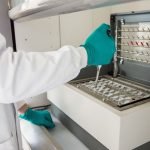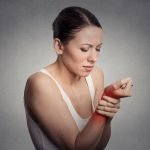Work Environment Complexity Hinders Healthy Lifestyle
Node Smith, ND
What do we do when the complexity of our lives is preventing us from making changes to improve our health? According to a new study, changing multiple behaviors may not be realistic for individuals in high stress jobs with demanding and variable schedules. The study was conducted using nurses, however occupations with similar demand elements may be relevant to consider.
Research on nurses found that less than 10 percent meet guideline recommendations for physical activity or healthy eating
The research on nurses has found that less than 10 percent meet guideline recommendations for physical activity or healthy eating. In 2017, the American Nurses Association announced that 2017 would be the “Year of the Healthy Nurse,” and implemented programs to help nurses reach health goals. What was found, and noted in this study, was that despite having access to pedometers, smartphone apps, and access to social support via Facebook group, the participants in the study were not able to change diets and physical activity at the same time.
“The complexity of nurses’ working environment limits the number of workplace programs to help them achieve and maintain a healthy lifestyle,” said lead author Luciana Torquati, PhD, School of Human Movement and Nutrition Sciences, University of Queensland, Brisbane, Australia. “This study’s aim was to evaluate and understand key factors to overcome the barriers to creating programs to help them change unhealthy behaviors.”
Forty-seven nurses were recruited for the study
Forty-seven nurses working in emergency departments, intensive care units, and inpatient facilities were recruited for the study. The majority were female, working full time, and more than 50 percent worked at least one overnight shift. Initial assessment included body measurements and questionnaires about self-rated health, interest in changing health behaviors, as well as social support. Participants were asked to wear an accelerometer for a week, and to set realistic health goals, concentrating on small and sustainable changes to diet and physical activity.
At the end of the 3 months
To support their goals during a three-month period, tools were included such as pedometer, smartphone app and Facebook group. At the end of the 3 months questionnaires, body measurements were again taken, and an accelerometer was used to track any changes in physical activity. This was also gathered at 6 months to rate sustainability of change.
The Findings
Findings were that fruit and vegetable intake did increase significantly, but activity decreased slightly. Feedback suggested that dietary changes were simply easier to implement than physical activity changes. The tools were largely unused, and not considered helpful.
Study underlines key points in facilitating change within any group
Commentary on the study underlines key points in facilitating change within any group, or individual, but likely even more so when such complex and rigid obstacles to change are involved. “There was a discrepancy between what nurses said they wanted during the study and what they were prepared to do,” said Dr. Torquati. “Future studies should take into consideration a person’s primary motivation plus readiness to change when creating strategies.”
Source:
Photo by rawpixel on Unsplash
 Node Smith, ND, is a naturopathic physician in Portland, OR and associate editor for NDNR. He has been instrumental in maintaining a firm connection to the philosophy and heritage of naturopathic medicine among the next generation of docs. He helped found the first multi-generational experiential retreat, which brings elders, alumni, and students together for a weekend camp-out where naturopathic medicine and medical philosophy are experienced in nature. Four years ago he helped found the non-profit, Association for Naturopathic ReVitalization (ANR), for which he serves as the board chairman. ANR has a mission to inspire health practitioners to embody the naturopathic principles through experiential education. Node also has a firm belief that the next era of naturopathic medicine will see a resurgence of in-patient facilities which use fasting, earthing, hydrotherapy and homeopathy to bring people back from chronic diseases of modern living; he is involved in numerous conversations and projects to bring about this vision.
Node Smith, ND, is a naturopathic physician in Portland, OR and associate editor for NDNR. He has been instrumental in maintaining a firm connection to the philosophy and heritage of naturopathic medicine among the next generation of docs. He helped found the first multi-generational experiential retreat, which brings elders, alumni, and students together for a weekend camp-out where naturopathic medicine and medical philosophy are experienced in nature. Four years ago he helped found the non-profit, Association for Naturopathic ReVitalization (ANR), for which he serves as the board chairman. ANR has a mission to inspire health practitioners to embody the naturopathic principles through experiential education. Node also has a firm belief that the next era of naturopathic medicine will see a resurgence of in-patient facilities which use fasting, earthing, hydrotherapy and homeopathy to bring people back from chronic diseases of modern living; he is involved in numerous conversations and projects to bring about this vision.










